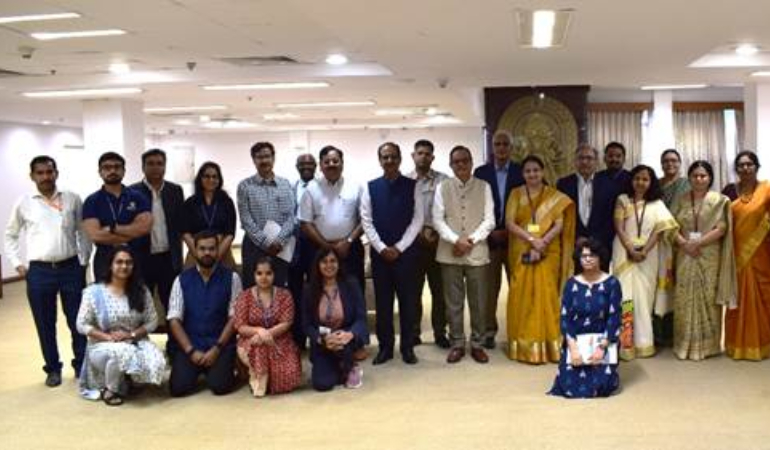Professor Ajay Kumar Sood, Principal Scientific Adviser to the Government of India, has launched the “e-mobility R&D Roadmap for India” report.
The e-mobility R&D roadmap focuses on four key areas namely: Energy storage cells, EV aggregates, Materials and recycling, and Charging and refuelling.
It lays out important research projects that will establish India as a leader in the global value and supply chains within the next five to seven years, paving the way for future independence and self-sufficiency.
The goal of this roadmap is to close significant gaps in the current framework for research and development. Even though many of the projects have not yet been successful internationally, there are some areas where India has not yet started preparations that have already shown notable international accomplishments. The purpose of including these projects is to lay a solid basis for the nation to pursue future innovations in those fields when the right opportunities present themselves, the attendees noted.
Among the attendees were Dr. K. Balasubramanian, Director, Non-Ferrous Materials Technology Development Centre (NFTDC), Hyderabad; Dr. Reji Mathai, Director General, Automotive Research Association of India (ARAI), Pune; and Dr. Parvinder Maini, Scientific Secretary, Office of the Principal Scientific Adviser to the Government of India.
Attendee remarks:
Dr. Preeti Banzal, Adviser, Office of PSA spoke about the Consultative Group on eMobility (CGeM). This is a group of experts from government, academia, and industry, was established by the Office of PSA in August 2022 to create technical roadmaps, studies, and documents to hasten India’s transition from predominately being a fossil fuel-based transportation sector to electric mobility. ARAI prepared the roadmap document with overall guidance from CGeM.
Prof Sood:
- India wants to attain energy independence by 2047 and a 45% decrease in emission intensity by 2030 in order to reach net-zero commitment by 2070.
- The automobile industry in India is one of the major contributors to the GDP of the nation and will likely remain so in the future given its rapid growth trajectory.
- This development should be in line with the nation’s Net-Zero vision and that the automotive industry urgently needs to cultivate a culture of R&D and innovation-driven growth.
- Wider use of electric vehicles, domestic energy storage system production, and the production of renewable energy to power charging infrastructures are vital.
- Imports play a major role in the e-mobility value chain at the moment.
- There is a need to lessen reliance on imports and bolstering domestic R&D capabilities in the automotive industry.
Professor Karthick Athmanathan, PSA Fellow and Practice Professor at IIT Madras:
- The main goal of the research projects has been determined by specialists in the fields of technology deployment and market leadership.
- Research projects were prioritized according to their potential influence on attaining national energy independence, their ability to utilize current resources and infrastructure, their market dominance, and their feasibility of implementation within the designated timeframes.
He outlined how the DST White Paper effectively tackled the steps required to escape the present import-dependent predicament and how this roadmap works to prevent a situation akin to this from occurring in the future as technologies advance.












